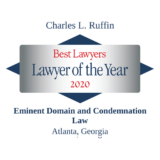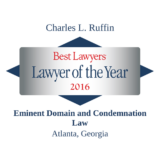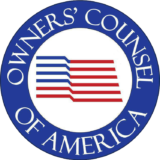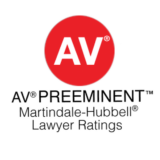A SUMMARY OF GEORGIA'S EMINENT DOMAIN LAWS
The following responses are intended to provide general information about eminent domain laws in the featured state. Such information does not constitute legal advice. Anyone interested in learning more about eminent domain law and the impact it may have on a given set of facts should consult with an OCA attorney or another attorney experienced in handling eminent domain cases.
The Georgia Constitution provides that the state and its subdivisions hold the power of eminent domain and may delegate that power for public purposes. The Constitution does not, however, mention eminent domain by name, as the intent was to create an inherent power unless otherwise limited. Eminent domain may be wielded by the state or its agencies, counties, municipalities, and various other quasi-governmental entities such as hospital authorities, public utilities and housing authorities.
Ga. Const. 1983, Art. I, § III, ¶ 1 states that “[p]rivate property shall not be taken, or damaged, for public purposes, without just and adequate compensation first being paid.” Additionally, the condemnation must be for a public purpose. The power of eminent domain cannot be exercised to acquire the property of one person solely for the private use or private gain of another person.
In 2006, the Georgia General Assembly adopted the Landowner’s Bill of Rights (O.C.G.A. §§ 22-1-1 through 22-1-15), which specifically outlines procedures that must be followed by condemnors prior to condemning property. These procedures were designed to protect property owners from being unfairly pressured in the often-lopsided negotiations that may take place between the condemning authority and the property owner prior to condemnation.
While the general power of eminent domain in Georgia is not easily challenged, there are a few defenses that may be available in specific scenarios. While a property owner may challenge whether a taking is for a public purpose, the courts are reluctant to intervene and have granted condemning authorities broad power to condemn property for public use or benefit, which leaves few circumstances that do not qualify as a public purpose.
A more capable defense is to attack the procedure of the condemning authority. The rules laid out in the Landowner’s Bill of Rights must be strictly adhered to, and failure to adhere to said rules can result in the court’s dismissal of the condemnation action.
Georgia courts have divided the concept of a public purpose into two categories: public use and public benefit. Public use does not mean merely available for use by the general public, but that the public or its agencies have the right to use the property as the need may arise. For example, a railyard or a power plant are public uses even though the general public may be excluded altogether.
A public benefit authorizes the acquisition of property to promote the public interest, develop natural resources, or provide for the public welfare. There is no fixed formula to determine whether a use is a public benefit, but the courts will examine each case to determine whether the public necessity, convenience, or welfare require governmental intervention.
The most basic general rule of compensation is that a property owner whose land is taken for a public purpose must be paid the value of the land or interest actually taken; and where only part of the property is acquired, he or she must be paid the value of the land taken plus the reduction in the value of the remaining land not taken.
There are three methods that a condemning authority may choose to condemn property: the assessor method, the special master method, or the declaration of taking method. The assessor method involves a hearing before a panel of three assessors to determine just and adequate compensation, with one assessor being appointed by each party and a third selected by the appointees. The special master method is designed to provide a quicker determination of compensation and involves a hearing before a special master appointed by the judge. The special master, who is an experienced attorney, may rule on questions of law. Either the assessor’s or special master’s rulings may be appealed to the superior court. Finally, the declaration of taking method generally determines compensation before a jury, although property owners may petition the court for an interlocutory hearing before a board of assessors to determine solely the amount of compensation. The declaration of taking method is only available for public road, street or transportation purposes.
Compensation can also include business damages in certain situations in which the property is uniquely related to the business. Most commonly this is found in circumstances in which the business will no longer be able to operate on the property after the taking and there is no similar property in the area to which the business could reasonably be relocated.
In the absence of special or unique circumstances, the courts uniformly apply the fair market value standard to determine the value of the property or interest taken, consequential damages to the remaining property and consequential benefits. The general definition of fair market value is the price the property will bring when it is offered for sale by one who desires, but is not obligated, to sell it, and is bought by one who wishes to buy it but is not obligated to do so. Generally, the property’s fair market value is the subject of opinion testimony by expert real estate appraisers, although an owner of property is also presumed competent to testify to the value of the property owned and being taken.
Fair market value may not be the measure of compensation in cases of unique properties that are not commonly bought and sold on the open market. For example, religious properties and schools are not typically bought and sold in arm’s length transactions, so those properties may be entitled to compensation based on the cost to relocate them.
Furthermore, if the taking is such that the property owner will no longer be able to occupy the remaining property, he or she is entitled to moving expenses and the costs of relocating the business or trade fixtures.
Consequential damages and consequential benefits are measured by the decrease or increase in the fair market value of the remaining property caused by the taking of part of the property for a public purpose. Consequential damages and benefits are based upon the present effect of the public improvement, but not upon the temporary effects during the construction of the improvement. The effect of the taking and the public improvement on the fair market value of the remaining property is usually shown by testimony from a real estate appraiser or other expert witness with knowledge of property values. Typical damages to a remainder include a change in the highest and best use, a loss of access or loss of parking spaces for a business.
Attorney fees, expert fees and litigation costs are rarely recoverable in condemnation actions under Georgia law. The exceptions to this rule are when the landowner is able to successfully defend against the condemnation on the grounds that the condemnor did not have the authority for the taking (such as when there is no public purpose) or when the condemnor abandons the condemnation altogether. Attorney fees are also recoverable in inverse condemnation cases where it is found that the condemnor failed to follow the procedural steps to formally take the property. An inverse condemnation occurs when there has been no formal condemnation action and yet a taking or damaging of real property by a condemnor has occurred.
Generally, the condemning authority may not take possession of private property prior to tendering compensation. However, under the declaration of taking method, the condemning authority may take possession before an evidentiary hearing is held to fix the amount of just and adequate compensation. Under this method, the condemning authority files a petition to condemn the property with the court and pays its estimate of just compensation into the court’s registry. This method is effective when there are issues regarding title to the property, contingent interests, property taxes due, or need for judicial discernment of any issue. However, this method is only available for condemnations related to public road, street, or transportation purposes.
REFERENCES AND LINKS
GEORGIA EMINENT DOMAIN Title 22








